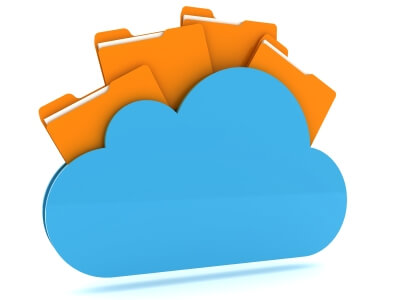TRUSTED EXPERTS
ANY DEVICE
Protecting Your Mission Critical Data in the Cloud

Do you know the number one reason for data loss in cloud storage environments? You might be surprised.
It’s not a data breach or attack directed at the service provider. It’s not a natural disaster.
It’s simple human error.
According to the Aberdeen Group’s report, “SaaS Data Loss: The Problem You Didn’t Know You Had,” (http://www.aberdeen.com/Aberdeen-Library/8323/AI-cloud-data-loss.aspx) more than one-third of the companies polled have lost data stored in the cloud. Nearly 65 percent of these losses were caused by user error. In 47% of the cases, users deleted the information, and 17% of the time, the information was accidentally overwritten.
Only 13% of instances of data loss were caused by hackers deleting information.
Cloud-based storage is handy for file-sharing without taxing the resources of your server, and makes it easy for today’s mobile workforce to work any time, from anywhere. And, user error aside, it’s largely a safe and secure method of data storage.
Keeping in mind that well over half of all instances of data loss are caused by end users – your employees, and your colleagues who may have access to your data in the cloud, and possibly even yourself – how can you protect your cloud-based data? Here are some tips.
1. Train employees on new applications. – We can’t overemphasize the importance of training. Most cloud-based storage programs are user-friendly and intuitive. Spending a few minutes training employees now can save hours of headaches, lost revenue, and even data recovery costs, later.
Encourage employees to ask questions if they’re not sure how to save, retrieve, upload or download files.
2. Adhere to file naming conventions. – Setting company standards and protocols for file names and folders can save lots of time when it comes to looking for files and can prevent accidental overwriting of mission critical files. Include this information during training, and provide a handy reference sheet as a reminder.
3. Limit access. – Limit access to cloud storage on an “as-needed” basis and change passwords frequently. Additionally, since most cloud storage is affordable, you can use different programs for different needs and limit access to each program.
4. Adhere to password best practices. – Passwords should be a combination of numbers, letters and special characters and should not be an identifiable word in the English language. Change passwords frequently, including whenever an employee leaves the company.
With a few precautions, you can avoid many of the causes of data loss in the cloud.
Start A Recovery
Get Started Below
Error: Contact form not found.
![]() WOW... fantastic customer experience! Submitted a totally dead 1TB drive for recovery yesterday now its fully recovered before noon the next day! Exceptional customer service, and impeccable reputation. Thank you 24 Hour Data, ever so much for getting my valuable data recovered and back to me. Very reasonable rates. My hat goes off to the BEST data recovery service in Dallas or in the country for that matter! You will not be disappointed using their services....
WOW... fantastic customer experience! Submitted a totally dead 1TB drive for recovery yesterday now its fully recovered before noon the next day! Exceptional customer service, and impeccable reputation. Thank you 24 Hour Data, ever so much for getting my valuable data recovered and back to me. Very reasonable rates. My hat goes off to the BEST data recovery service in Dallas or in the country for that matter! You will not be disappointed using their services....
Mark Davis
Bear Technologies











